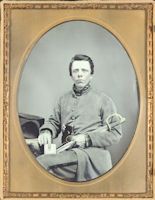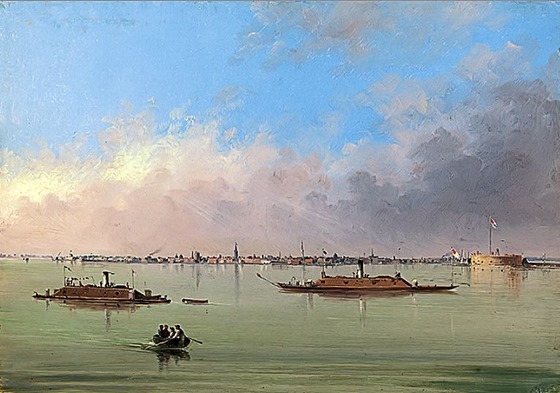Before Vicksburg, Saturday, May 23. 8 A. M. We are lying in the road as yesterday, but little fighting yet except with artillery. Rumor says that pioneers are undermining the forts to blow them up. A gentle shower has fallen which has lightened the air and settled the dust, “God-sent” for the poor wounded, of which there are a great many. While writing, the ambulance is waiting for the remains of Colonel Dollins of the 81st Illinois and Colonel Boomer, commander of the 3rd Brigade, both of whom fell yesterday, gallant officers and accomplished gentlemen. 12 M. Cannoneers ordered to the front with entrenching tools, and in an hour the pieces followed into a secreted position on the brow of a steep and rugged hill. A stockade dug for the pieces, into which they were drawn by hand. Limbers put under cover of the hill, and the horses unhitched and tied to the trees. The guns commanded the right. A slow fire was opened which was kept up till dark, of shell and shrapnel, mostly to keep the rebel sharp-shooters back. Drew rations of coffee, ham and hard bread which gave us a supper of good cheer and light hearts.
Fixed our beds under the brow of the hill just out of reach of the little deadly missiles that went whistling over our heads every once in a while in volleys. But we were in unusually good spirits, cracking jokes ‘neath the bright silver moon. No sooner had we begun to travel in the “land of Nod”, when the 3rd Platoon was ordered to turn out, quick and still, hitch up and pull out. It is expected that the rebs will try to cut their way out to-night and we want to be ready. In fifteen minutes we were on the road, moving back toward our old place; unhitched and lay down again with orders to be ready at half past three A. M. Thus we ended another day before Vicksburg.








